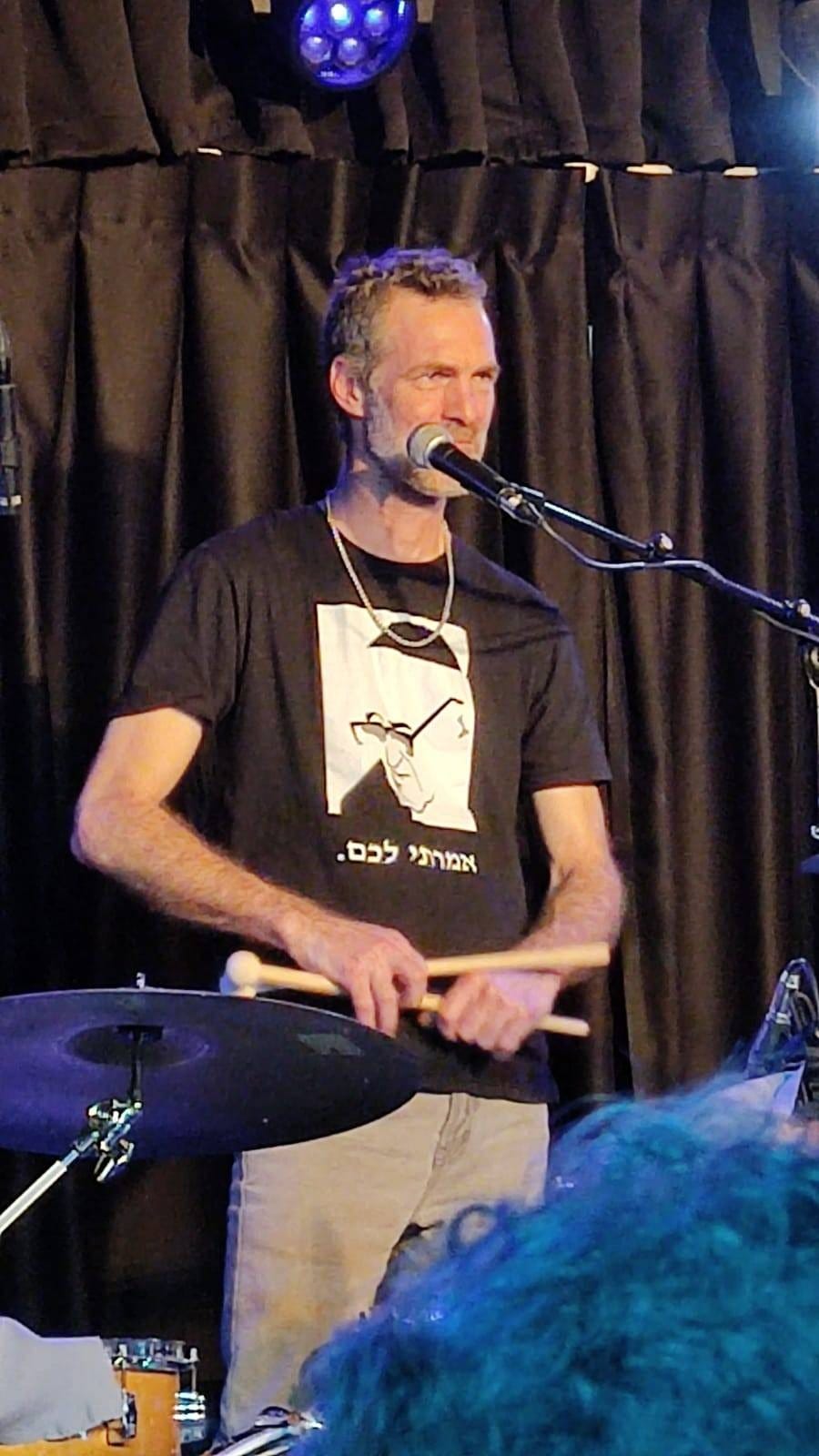>>>>>>>>>>>>>>>>>>>>>>>>>>>>>>>
Select Parsha Highlights (largely pulled from the dvar last year):
Yitro (Jethro), father in law of Moses, brings the family to the Mountain of G-d where Bnei Israel are camping. Yitro is happy to hear the details of the G-d --> Bnei Israel --> Pharoh interaction, and Yitro blesses G-d (or declares that G-d is blessed?). He makes a burnt offering to G-d and a dinner party for the elders of Israel.
Yitro sees how masses of people stand in line, for hours or days, to receive judgement from Moses. Yitro offers Moses a course in business management, resulting in delegation, neighborhood customer service centers, and middle management. (Perhaps Joseph had such knowledge and it was lost in the transition of Israel from traders to serfs?)
Moses thus avoids burnout. The tribe avoids disillusion. (As justice delayed is justice denied... and who feels well done by when served by a tired or rushed judge? [or waitress, for that matter...])
אִ֣ם אֶת־הַדָּבָ֤ר הַזֶּה֙ תַּֽעֲשֶׂ֔ה וְצִוְּךָ֣ אֱלֹהִ֔ים וְיָֽכָלְתָּ֖ עֲמֹ֑ד וְגַם֙ כָּל־הָעָ֣ם הַזֶּ֔ה עַל־מְקֹמ֖וֹ יָבֹ֥א בְשָׁלֽוֹם
-- [Yitro says:] If you do this thing [delegate the administration of justice to an org chart of justices], and the Lord commands you, you will be able to survive, and also, all this people will come upon their place in peace."
Yitro heads home, his mission accomplished. (Leaving a positive model of in-law interaction: Praise recent accomplishments. Observe with closed mouth. Offer advice only after confirming there is interest in such.) G-d speaks to Moses. Moses passes on the words. G-d again speaks to Moses. A sacred time and space is defined. (Or: A space is made sacred for a specific window of time.)
A slightly confused dialog takes place between G-d and Moses. Moses goes up the mountain, then down to relay a message to Israel, then back up. Then back down.
To deliver the Ten Commandments.
And much more....
<<<<<<<<<<<<<<<<<<<<<<<<<<<<<<<<<
Yitro reprimands Moses for overworking himself.
-- יח: נָבֹ֣ל תִּבֹּ֔ל גַּם־אַתָּ֕ה גַּם־הָעָ֥ם הַזֶּ֖ה אֲשֶׁ֣ר עִמָּ֑ךְ כִּֽי־כָבֵ֤ד מִמְּךָ֙ הַדָּבָ֔ר לֹֽא־תוּכַ֥ל עֲשׂ֖הוּ לְבַדֶּֽךָ:
-- 18: You will surely wear yourself out both you and these people who are with you for the matter is too heavy for you; you cannot do it alone.
Moses fell into the classic trap of overwork: Everyone, most of all <yours truly>, thinks I do <this> better/more appropriately than others. So all of <this> rolls to me. Further, <this> is objectively important/critical, so it is reasonable for me to dedicate exceptional time and energy to it. Further still, <this> is for the greater good. Self sacrifice for the greater good is a positive act.
And off he goes down the rabbit hole of taking on too much.
My Mother called this: The curse of competence.
Mom's framing captures some of the external (folk coming to you because you execute well). But it fails to capture the internal justification and failure to set healthy boundaries.
Yitro is an early model for the therapist or constructively intervening family member. (I recall, when I was at "peak parenting" workload and workplace stress, my Mother telling me: Go get a massage or two each month. A constructive intervention that I followed.)
The message is one to internalize: Yes, as the poem says, we are "powerful beyond measure." A corollary is our key responsibility to maintain this attribute. Both to avoid damaging the ability to act on this gift and also to avoid over-committing ourselves to the point where our strength is no longer under our hour-to-hour direction. (I can choose to give ALL my energy to a job/relationship/task. This is also a choice to deny my energy to everything else.)
Yitro's point, per Rashi, is that Moses will simply wither under a workload that is larger than one person can handle. And Yitro may also be saying: There are other things going on around you (family, clan, other aspects of leadership) that you are not to starve in the process.
A few decades ago, I was busy running around the Bay Area as a consultant. Lunch was packed for me each day. I typically requested a sandwich that was "structurally coherent" so I could eat it with one hand. Why? Because I typically ate behind the wheel, en route from one client to another.
When I mentioned this to my then-chavrusa, he said: Stop eating lunch while driving. That is Not The Jewish Way.
His message was that mealtime is... a time. A time cleared of other things. A time when the "critical" work of the day is put aside and you focus on yourself and recharge. Covey's Seven Habits captures this in Sharpen the Saw.
I wonder if Yeshayahu Leibowitz would consider “excessive” self sacrifice of this kind as a form of Avodah Zara. On one hand, Leibowitz strongly endorsed individual agency and autonomy. He also had concerns about elevating one's agenda to a holier-than-other level.
In other words: Are you a humanist if you are inhuman toward yourself? (No matter how you practice or promote humanism toward others.)
Leibowitz would, perhaps, subscribe to this Raf principle: Our work, our lives, are marathons. Not sprints.
It is important to live this reality. Hopefully before an in-law tells you to!
----------------
--end--



